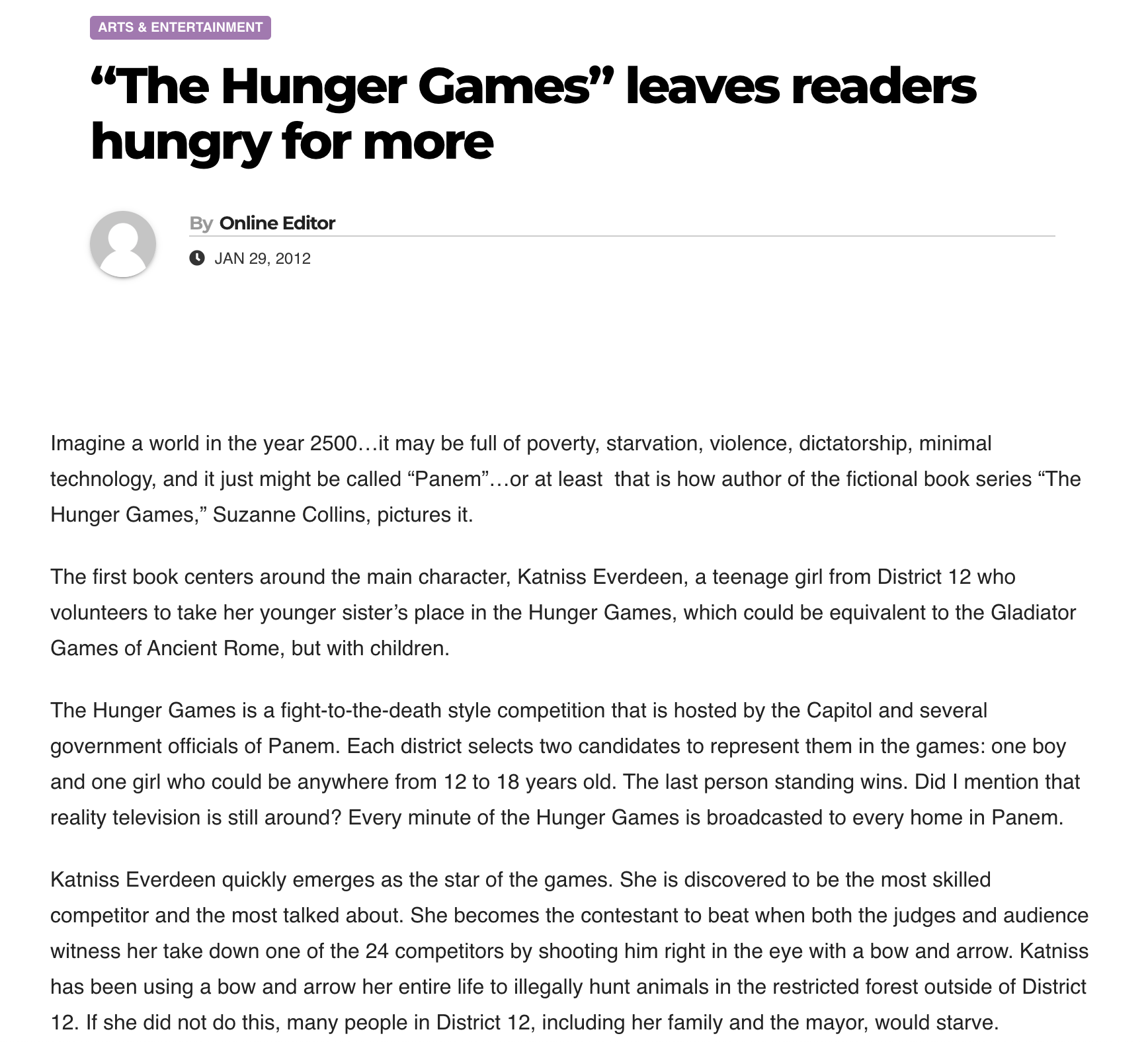Image: 126-08-Op-Ed- Looking Back
In 2012, then-Staff Writer Liz Thompson wrote an article describing “The Hunger Games” franchise, promoting a movie adaptation that was coming to theaters in March of that year. A lot of language Thompson uses focuses on what readers now gravitate toward: what entices people beyond the supposed appropriate age of young adult dystopian audiences — one of which is quite literally the author of this article — to hash out a book roughly sixteen years after its release?
To me, Thompson and several more articulate BookTokers and lovers of analysis, it’s Panem’s adoration of reality television. The Capitol folk are glued to their screens, absolutely soaking in and obsessing over every moment of the Hunger Games. Even as a 12-year-old who hadn’t quite grasped the meaning of subtext or just plain text, the severity of the Capitol’s dehumanization of the “district children” was beyond evident. So, beyond the flashy dystopian-themed marketing, the love triangle and the complex protagonist whose form archetype was diluted and overproduced in the following years, there was something that felt strikingly relatable, even to young adults at the time, regardless of whether tween me could have articulated this point when first reading the novel. What I think many other novels and series who were attempting to replicate “The Hunger Games” success suffered from was a lack of substance. And by “substance,” I don’t mean length — some of these authors definitely knew how to write a lot of words — or even characterization, which, yes, some “copycats” did struggle with as well; I mean connection with their audience. Yes, many tween and young adults who read “Divergent,” for example, can connect with Tris, the protagonist, and her otherness, in a sense. She’s different and cooler. So, even if our tween selves didn’t feel that confident about ourselves, we wanted to feel that way, to be perceived that way or to possess this coolness.
However, while many adults still feel some degree of “imposter syndrome,” this sort of desire reaps its greatest success with younger audiences; it is just not as resonatory for older audiences. We don’t have the same sort of desires we did when we were 12 — and thank goodness! Many dystopias that followed “The Hunger Games,” — of which I harp on “Divergent” the most because it possesses some of the most direct parallels — suffered from this issue, along with other ones. YA during this moment in time was rife with head-boggling decisions (a group of young teens solving the murder of a classmate all of them had seemingly begrudged was a staple for far too long) — of writing stories that connected with themes particularly prominent in young adulthood.
In short, “The Hunger Games” subverts the traditional pitfalls of the young adult dystopia by connecting with audiences through the discussion of real-world issues that are still accessible for younger audiences. As I said, when I was 12 and reading these books, perhaps I couldn’t articulate, at least very well, why these books connected with me, but it’s what allowed this series to become even more relevant and thought-provoking as I’ve gotten older.
Alexis Stakem is a second-year English major with a minor in Social Work Concepts. AS996397@wcupa.edu

